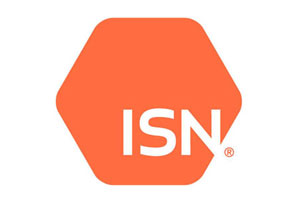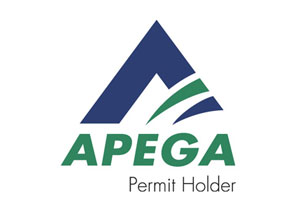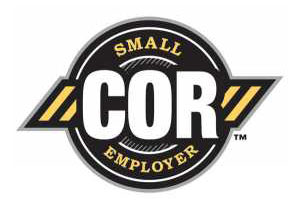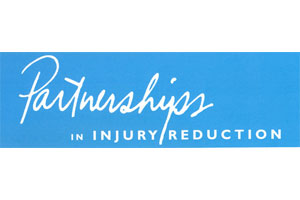Core Integrity provides solutions for your integrity needs for a total start to end solution.
Asset Integrity Solutions for
- Pressure Vessels
- Pressure Piping
- Pipelines
- PSV/PRD
- Storage Tanks
Integrity Assessments & Inspections
- Chief Inspector Services
- PEIM Manual Development
- API 510, API 570, API 653 Certified Inspectors
- ABSA PESL Certified
- TSASK PEI Certified
- NACE Certified
- Shop Surveillance & Source Inspections
- Pipeline Assessments
- Repairs/Alterations
- Integrity Assessments
- Pressure Piping
Integrity Engineering
- Design & Fabrication
- Corrosion Engineering
- Materials Selection
- Design Survey
- Repairs & Alterations
- MOCs/RIKs
- Engineering Assessments
- FFS Evaluations
- Development of Corrosion Circuits
Project Management / Support
- Turnaround Planning
- Economics and Vendor Selection
- Project Implementation
- Project Initiation, Execution & Close
- Jurisdictional Issues / Audits
- PEIMS/PIMS Manual Development
- ITP Program Development
Field Supervision
- Construction
- Repairs, Alterations, QA/QC
- Site Turnarounds
- Vendor Audits
Pipeline Integrity
- Asset Management
- Risk Assessments
- Engineering Assessments
- Pipeline Assessments
- POMM/IMP – Manual Development
Pressure Equipment and Storage Tank Integrity Management
To ensure the integrity and reliability of their assets, operators need to have a program that identifies all potential failure mechanisms pertaining to their assets, the likelihood and consequence of these failures, and the method(s) of preventing or mitigating risk. An effective integrity management program is well defined and strategically implemented to compliment the client’s operations and economic models. The basic elements of a pressure equipment integrity program include: capable engineering, quality manufacturing and construction, proper installation, corporate training, competent operations, and strategic monitoring & inspection. The primary goals of these elements are to provide a safe work environment, fewer unplanned outages, and reduced opex and capital costs. As a certified inspection company, Core Integrity provides integrity management for the entire pressure equipment discipline.
These programs and services include:
Chief Inspector Assignment
Catalogue accurate inventories of equipment and processes in order to keep inventory up to date
Determine and rank failure modes on equipment
Prepare and continuously improve suitable mitigation and operating activities
Pipeline Integrity Management
To ensure the integrity of their pipelines, operators need to have a program that identifies all the integrity threats, their likelihood and consequence. Core Integrity provides pipeline integrity management programs which include the prevention or mitigation of these threats.
Asset Integrity Engineering
Core Integrity provides technical integrity engineering to the engineering disciplines associated with the design, assurance and verification functions that ensure the client’s equipment, process, or system meets its appropriate and intended requirements under stated operating conditions. Application of these disciplines are designed not to adversely impact a program, but will in fact minimize cost, schedule, technical and legal risks and improve the overall life cycle cost.
Core Integrity is authorized to practice engineering in the provinces of Alberta, British Columbia, and Saskatchewan.
Asset Integrity Services Include:
Inspection Plan Implementation
Core Integrity provides a complete integrity management program that includes mitigation, monitoring, inspection and repairs. This service also includes program design and ongoing support for implementation, quality control, compliance reporting as well as internal audits and reviews.
Regulations and Reporting
Working as a liaison between industry players and the regulators, Core Integrity assists clients in maintaining compliance of pipeline and pressure equipment activities as they relate to the jurisdictional Acts and Regulations. To ensure industry pipelines are correctly identified within public records, Core Integrity will routinely review licence information and recommend proper updating procedures, should any discrepancies be found. In the event that an amendment to a pipeline license is required, Core Integrity will gather and submit the required information for approval from the jurisdictional regulator. Core Integrity also initiates educational and training programs for staff to ensure our team is as up to date on new regulations, guidelines, and standards.
Chemical Program Assessment and Design
With an extensive background in chemical treatment programs, Core Integrity continues to offer its expertise in the area of oil and gas applications. As a multi-disciplined team, our chemical program assessment and design services are integrated with and complement related elements of the integrity management program.
Liner Installation Design Review and Recommendation
Liner technology has improved significantly over the past few years and provides a practical and economical solution for highly corrosive environments. Core Integrity provides liner material recommendations and review to support clients in meeting production pipeline service conditions and regulatory requirements.
Failure Analysis (RCFA) and Investigations
Core Integrity conducts failure analysis on oil and gas pipelines, pressure vessels, as well as facility equipment. Mechanical testing, chemical analysis and visual inspection are all used to determine the root cause of a failure. All results are used to provide recommendations for the prevention of future failures.
Procedures Development and Review – SOP’s, SSOP’s, MOC Programs
Core Integrity develops custom maintenance procedures for oil and gas production facilities (SOP’s, SSOP, MOC Programs). These include procedures that are developed specifically for the operational constraints of a specific facility and in accordance with design codes, OEM requirements and applicable regulations.
Compliance Monitoring
This report card is typically conducted annually and is used to inform management that the required tasks outlined in the corporate manuals (PEIM, IMP, and POMM) are being completed. With this monitoring, all documentation would be readily available in a compliance audit should a regulatory audit be conducted. As per CSA Z662 pipeline code, pipeline operations and maintenance manuals shall be developed and required tasks listed within the POMM. This service is not limited to the tasks conducted by the operations staff, however, they include: monthly cathodic rectifier readings, annual cathodic protection adjustive surveys, pipeline pigging summaries, compliance to chemical inhibition programs, right-of-way surveillance, pressure switch function testing and calibration, pipeline discontinuation / abandon procedures, ground disturbance documentation and crossing agreements.
Corporate Manual Development – Pipeline & Pressure Equipment
Core Integrity is actively involved with industry groups and regulatory bodies in an effort to maintain a current and sound knowledge of regulations and best practices, as they relate to the operations and maintenance of pipelines. We develop Integrity Management Programs (IMP) and Pipeline Operations and Maintenance Manuals (POMM) suited to the asset base and needs of our clients. Additionally, we develop Pressure Equipment Integrity Management Plan Manuals (PEIMP).
Inspection Data Management
Core Integrity offers UT survey scope-of-work development and implementation, related corrosion monitoring data management, and interpretation of the results.
Inspection Planning
Our certified and experienced inspectors can plan your inspection needs based upon the combination of past history, present conditions, processes and threats.
Non-Metallic Material Selection
Non-metallic materials are widely used for corrosive conditions in gas plants, water floods and production barriers. Core Integrity provides design solutions for effective application of non-metallics in these situations as well as providing inspection services and repair management for coated equipment.
Repair Program Design
Our team designs repair programs for pressure equipment and pipelines, in addition to having the resources and expertise to implement the repairs. All repair program preparations include obtaining jurisdictional approval.
Integrity Management Program Implementation
Core Integrity offers services to develop and implement PEIM systems for pressure vessel and related piping activities.
Project Management
Core Integrity provides project management services to ensure the efficient execution of Integrity Management Programs as listed above.
Business Efficiency Assessments
The oil and gas production industry is continually changing. Often these changes involve organizational and business process changes as well. Proactive companies initiate business process assessments in order to find and adjust internal procedures, programs and practices. Core Integrity provides senior personnel to assess operating and maintenance business processes and provide an organizational summary that includes improvement recommendations.
Cost Economic Modelling
Often referred to as total cost models, these models provide a comprehensive cost summary for the maintenance and reliability components of a business, and reflect the complexities of the business. Core Integrity’s multi-disciplined skill set provides the basis for building appropriate cost models that allow businesses to make better decisions about opportunities to manage overall costs. The key to this process is the technical interrelationship between different approaches to maintenance and reliability. Ultimately, the ability to describe the cost benefits in the context of total costs is paramount in delivering value to the operating organization.
Corrosion Assessments
Core Integrity provides corrosion assessments for both facility and pipeline assets. The likelihood of corrosion (both internally and externally for pipelines) is determined using operating conditions, operating history and previous inspection results. The likelihood of corrosion is then combined with the consequence of failure and operating logistics so that a comprehensive corrosion mitigation plan may be designed. Core Integrity also provides recommendations for measuring the success of the mitigation plan through monitoring, inspections and periodic reviews.
Material Selection
Materials for the construction of pressure containment equipment including plant facilities and pipelines require consideration of cost, service condition, constructability and maintenance. Core Integrity provides engineering support for the consideration of these factors, including optimal selection of materials for the design and operating conditions of all production equipment.
Data Collection
Core Integrity manages facility data for industry clients. We research all facilities, interview personnel, and accurately collect data from all available sources to ensure data is complete prior to entering it into the asset management system. From there, we actively manage information reviews and updates on a regular basis. We then incorporate a rigorous internal and client review process to ensure the information is current, while reporting is designed to meet the unique needs of each client.
Visual Inspections
We have a qualified team of individuals who have process experience within all facets of the pressure equipment industry. Qualifications include API-510, API-570, API-653, PESL, Sask PEI, and NACE certifications.
Engineering
Risk assessments – Deferral justification, Inspection planning, Failure consequence
Engineering assessments
Assessments for all damage mechanisms
Pipeline and facility mapping services
Corrosion monitoring plans
Fitness-for-Service (FFS) assessments, according to API 579
Finite Element Analysis (FEA) on pressure vessels, piping, tanks and pipelines
Design review and verification for: Pressure vessels, PSV’s, Pressure piping, Storage tanks, Pipelines
Design and vessel registration with ABSA, BCSA, TSASK and other regulatory bodies
Alterations and repair procedures on pressure vessels, tanks and pipelines
Tank out-of-roundness surveys
Remaining life assessments
PSV sizing and selection – to API 520/521 requirements
Vessel and boiler re-rating due to: Change of service, Alterations, Damage and/or corrosion
ASME code calculations
Fatigue assessment
Review of cyclic service on vessel life
Piping stress analysis
Canadian Registration Number (CRN) applications
Storage Tank (AST/UST) Engineering
Tank analysis, alteration and recertification
Tank design and design review
Tank failure analysis
Regulatory consulting related to tanks
Tank repair and alteration procedures
Repair and alteration project management
Working Pressure Uprate and Evaluation




